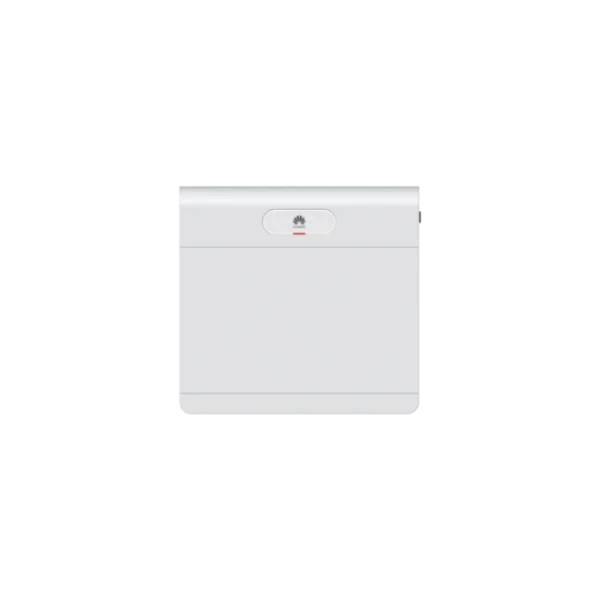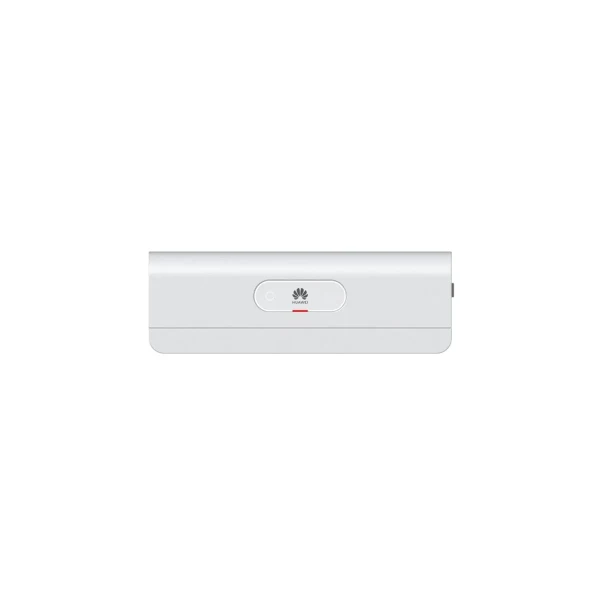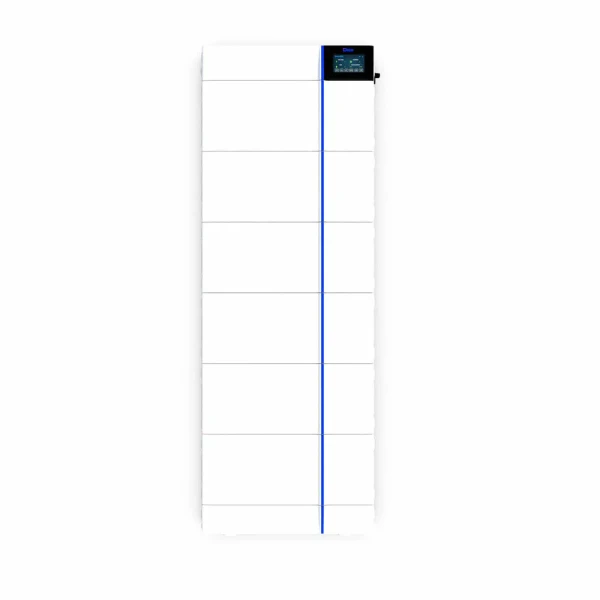Types and applications of industrial batteries for businesses
Industrial batteries combined with solar panels play a key role in making businesses more energy-independent, cost-effective, and sustainable. The use of renewable energy sources is becoming increasingly common, but their stable and reliable operation requires efficient energy storage. Industrial batteries serve precisely this purpose: they store energy, balance production, and ensure a continuous energy supply.
This article provides a detailed overview of how industrial battery cells work in solar power systems, what their advantages are, and what types are available to businesses. We will discuss the characteristics of lead-acid and lithium-ion technologies, as well as the technical and economic considerations that should be taken into account when making a decision.
Finally, we will use real-life examples and SOLARKIT case studies to show how a well-chosen industrial battery can be integrated into solar energy utilization. These experiences can help you navigate the market and choose the most suitable system.
What is an industrial battery and why is it important for solar panels?
An industrial battery is a high-capacity, reliable energy storage solution used by businesses and industrial facilities. Its purpose is to store excess electrical energy generated by solar panels and release it when the system or consumption requires it. In addition , battery solutions connectedto solar panels are becoming increasingly important in maximizing return on investment.
When harnessing solar energy, production depends on the time of day and weather conditions, which often results in surplus energy, while electricity is needed at night. Industrial batteries smooth out these fluctuations and ensure a continuous energy supply. The self-sustaining operation of solar panel systems allows businesses to reduce their dependence on the grid and their energy costs.
As energy prices fluctuate, businesses can achieve significant savings by charging during cheaper periods or storing energy for use later during peak times – which also represents an economic advantage. They also help protect against power outages, as the switchover happens automatically in seconds, increasing plant reliability.
The role of industrial batteries in solar energy systems
Batteries with integrated industrial battery cells are of particular importance in solar energy systems, as they enable the efficient storage of electrical energy that has been generated but not used immediately. During the day, solar panels often generate surplus energy, which these batteries are able to store, ensuring energy supply even in the evening or during cloudy periods.
Industrial energy storage not only provides a reserve, but also balances out differences between production and consumption, thus optimizing feed-in to the grid or independence from it. In addition, automated control systems, such as Solax batteries or Deye batteries, are able to respond to energy demands in real time, thereby increasing system efficiency.
For businesses, it is also important to ensure continuity of operation in the event of a failure or power outage. State-of-the-art Huawei battery solutions are able to switch to battery mode immediately, ensuring uninterrupted power supply. This increases production security and contributes to the smooth running of business processes.
Advantages: why is it worth installing an industrial battery?
Installing an industrial battery is particularly worthwhile when combined with solar panels, as this allows businesses to significantly reduce their energy costs. Energy storage allows energy generated during the day to be stored and used from the battery during peak periods when grid power is more expensive. Charging the batteries does not require a separate charger, as the system uses the same inverter that handles the power from the solar panels and is able to reverse the direction of the current for storage.
Another advantage of batteries is that they can immediately provide continuous power in the event of a power outage. This is particularly important in industrial environments, where production downtimecan be costly. Fast-response energy storage tailored to PV enhances security of supply and reduces losses, thereby increasing system efficiency.
There is also an important environmental argument in favor of energy storage: rechargeable batteries enable companies to increase their self-consumption ratio, thereby reducing the load on the grid and their ecological footprint. This not only supports the achievement of sustainability goals, but also strengthens the company's corporate social responsibility (CSR) rating.
How do industrial battery cells work with solar panels?
Industrial battery cells work by storing the electrical energy generated by solar panels and feeding it back into the consumer system at the appropriate time. This solution allows energy use to be balanced, especially when solar production does not coincide with consumption periods, such as in the evening or during cloudy weather.
The first step in the system's operation is to receive the direct current (DC) generated by the solar panels, which is then optimally transmitted to the battery bya charging unit. This energy is stored in chemical form inside the battery.
Inmodern rechargeable lithium-ion systems, lithium ions migrate from the anode to the cathode during charging and back again during discharge, generating an electric current. The battery management system (BMS) monitors the operation of each cell and intervenes when necessary to ensure safe and efficient operation of the system.
The stored energy is converted by an inverter into alternating current (AC), which can be used directly by industrial consumers. This process ensures continuity of power supply and reduces grid dependency – a particularly useful solution in industrial, manufacturing, or logistics environments.
What types of industrial batteries are there?
The types of batteries used for industrial energy storage differ in terms of their technological characteristics and areas of application. The most common type is the lithium-ion industrial battery, which has different technical parameters and economic advantages compared to other batteries.
Lead-acid batteries have been on the market for a long time, are considered a proven technology, and can be installed at a relatively low investment cost. Lithium-ion systems, on the other hand, offer more advanced, longer-lasting, more compact, and higher-efficiency solutions for modern industrial applications.
The selection of the appropriate battery type depends on the energy requirements of the business, the characteristics of the installed system, the available budget, and the level of maintenance that the user is willing to undertake. The characteristics of each type are presented in a separate subchapter below.
Lead-acid battery cells
Lead-acid battery cells are among the most common and cost-effective energy storage solutions. This technology has been used in industry for decades, mainly for powering security systems, uninterruptible power supplies (UPS), and lower-power solar systems.
Its advantages include easy installation, relatively low investment costs, and the fact that it is widely available and well-known technology. However, these batteries require more space, have a shorter lifespan (typically 500-800 cycles), and require regular maintenance, such as checking fluid levels and fine-tuning charging parameters.
Due to their cycle life, depth of discharge, and temperature sensitivity, this solution is ideal for systems where daily energy consumption is predictable and frequent cycle changes are not necessary. Due to their reliability and low initial cost, they continue to play an important role in the range of energy storage solutions.
Lithium-ion industrial batteries
Lithium-ion industrial batteries are at the forefront of modern energy storage solutions, especially for high-performance and smart solar systems. These systems are ideal for continuous, intensive use as they offer high energy density, long life, and low maintenance.
These batteries typically withstand 4,000 to 6,000 charge-discharge cycles, while their efficiency can be as high as 90 to 95%. Their small size, light weight, and modular design facilitate flexible installation and space savings. In addition, their built-in battery management system (BMS) continuously monitors the status of each cell, protecting the system from overheating, overcharging, and other faults.
Although the initial investment cost of lithium-ion technology is higher, it pays off in the long run through increased service life, reduced maintenance requirements, and outstanding performance. In industrial environments—especially where continuous energy management and system optimization are key.
What factors should be considered when making a choice?
The selection of an industrial battery requires consideration of several factors, as the right energy storage system can result in significant long-term cost savings, stability, and efficiency. Before making a decision, it is worth considering the following factors in detail:
1. Performance: Determining the performance of the appropriate battery energy storage system is key to optimal operation. Key factors include the system's charging capacity, which determines how quickly the battery can be charged, and the expected peak instantaneous consumption of the facility, which indicates the extent to which the system can meet energy demands under maximum load.
2. Space requirements and weight: The installation environment largely determines the type and size of battery that can be installed. More compact and lighter lithium-ion solutions may be advantageous, especially in confined or specialized locations.
3. Budget and return on investment: In addition to the initial investment cost, operation, maintenance, and system lifespan are also important considerations. A more expensive system may be much more economical in the long run.
4. Compatibility and expandability: The selected battery must be compatible with the existing inverter, charge controller, and other system components. It is also useful if the system can be expanded in a modular fashion.
5. Operating environment: Temperature, humidity, and dusty environments can affect battery performance. Some types are more tolerant of extreme conditions, while others require extra protection.
Based on the above criteria, it is easy to determine which type of industrial battery is best suited to the operation and energy requirements of a given business.
SOLARKIT examples and case studies
SOLARKIT offers a range of industrial energy storage systems that have proven their effectiveness in a variety of business environments. These solutions are based on different types of industrial batteries and achieve maximum energy savings and operational reliability through the optimization of system components.
1. Manufacturing plant example: A small domestic manufacturer supplemented its existing solar panel system with a 30 kWh lithium-ion battery system. After introducing energy storage, they were able to cover 70% of their energy consumption from their own production, reducing their monthly costs by 35%. In addition, during power outages, the entire plant continues to operate as the system automatically switches to battery mode.
2. Hotel industry application: A continuous power supply is critical in a rural wellness hotel. A 50 kWh energy storage system was installed here, which charges the batteries outside peak hours and then provides power in the evening when guests' energy consumption is at its highest. The result: optimized electricity consumption and more predictable monthly expenses.
3. Logistics center: At a warehouse and distribution center in Budapest, a Deye battery system was used to reduce the load on the grid. The system charges at night and helps to cover the operation of high-energy-consuming machines during the day. After installation, not only did electricity costs decrease, but the company's environmental sustainability rating also improved.
These case studies clearly show that the right industrial battery solution can deliver not only energy savings, but also operational reliability and environmental benefits.
FAQ – Frequently Asked Questions
1. What is the role of an industrial battery in a solar power system?
Industrial batteries store energy that has been generated but not used, and then provide it when it is needed – for example, in the evening or during a power outage. This increases the efficiency of the system and reduces grid dependency.
2. Which is the better choice: lead-acid or lithium-ion batteries?
In general, lead-acid systems are cheaper but have a shorter lifespan. Lithium-ion batteries are more expensive, but they have a longer lifespan, require less space, and need less maintenance.
3. What factors should be considered when purchasing industrial batteries?
Important considerations include energy requirements, cycle life, budget, maintenance options, system compatibility, and operating environment conditions.
4. How much does it cost to install a system?
The price depends largely on capacity, technology (lead-acid or lithium-ion), system complexity, and the type of accessories (e.g., inverter, BMS). The total investment can usually be recouped within a few years.
5. What are the benefits of installation for businesses?
First and foremost, it offers cost savings, protection against power outages, environmental sustainability, and increased efficiency of the solar system. It also contributes to obtaining green certifications.




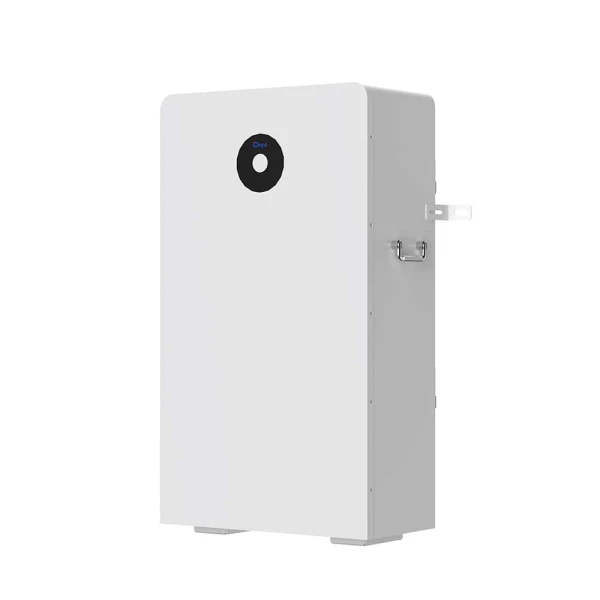
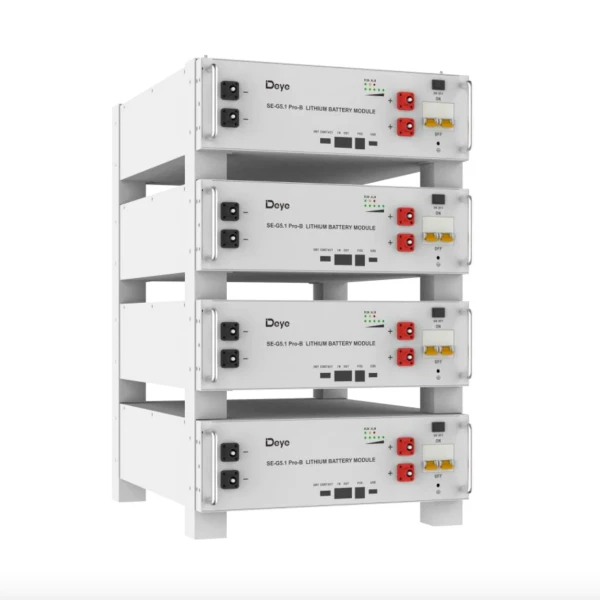
-thumb.webp)


